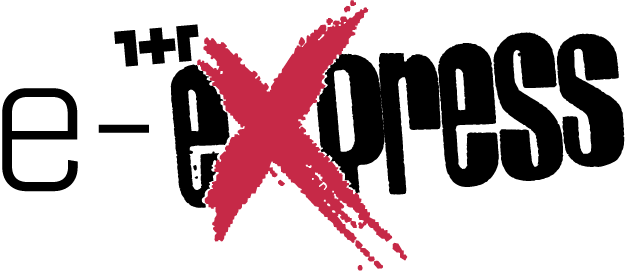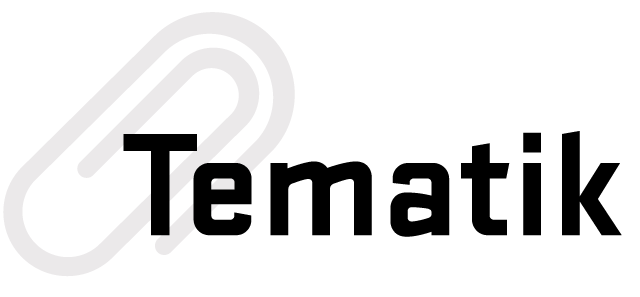Som Energia (We are the Energy) Sustainable Energy Cooperative, started in the city of Girona in Catalonia in 2009, and is rapidly spreading all over Spain. Currently, it has about fifty-seven thousand partners. Yaiza Blanch tells the story of the cooperative, which is not only struggling for green energy but also for energy justice and climate change.

When and how Som Energia was founded?
Yaiza Blanch: It all started with Gijsbert Huijink, the former general director of the cooperative from the Netherlands, telling his students in Girona University: “Unlike other places in Europe, there is no market for those who want to use green energy here. In other countries, consumers can buy sustainable energy from energy cooperatives.” Then, Huijink, together with his students and volunteering citizens, started to work on a cooperative model that aims to transform traditional energy production and consumption. The cooperative started the 350.org campaign in October 2010, in Catalonia. In this way, 350 people who want to join the first sustainable energy cooperative in Spain came together.
 What does the energy sector in Spain look like?
What does the energy sector in Spain look like?
Electricity market in Spain consists of three components: production, distribution and marketing. If you want to be part of the production and marketing as an investor, there is nothing that prevents you. Free market conditions would allow you to do that. Yet, the field of distribution is dominated by an oligopoly of five companies (Iberdrola, Fenosa, Endesa, E.ON, EDP). Som Energia is an energy production and consumption cooperative. We cannot intervene in the distribution since the laws do not allow us. These profit-oriented companies sell energy, which is actually a basic right end need, by making high profits. Energy is a basic need for people’s survival. In these market conditions, this very need becomes a commodity, protected by laws.
How can you come up with an alternative under these dire circumstances?
Demand creates supply. We try to supply the demands of everyone who wants to use green energy. We produce part of the energy. We reach out to other producers who have product identity to produce the rest. This is our motto: Produce green energy, you will have customers.
How do new partners become part of the process in Som Energia?
We haven’t run advertising campaigns. Our partners hear about us through word of mouth. This is crucial, since we want our partners to be people who embrace sustainable energy from a political perspective. We don’t want people to become partners due to our low-price policies. We have about 57 thousand partners currently. We were able to reach this number due to all the groups working locally in different parts of Spain.
Som Energia seems to have rapidly reached the number of partners, which, the biggest energy cooperative in Europe, Ecopower, founded in Belgium in 1991, reached in 25 years. What is your secret?
Grassroot organization is the key, as well as the cooperative structure of our management. People who join Som Energia feel they are part of an ideal. The number of our partners increased significantly during the independence struggle in Catalonia recently. People realize how energy companies in Spain, such as Endesa, ignore people’s interests, and decide to join Som Energia. We are not exempt from politics, history and the existing social relations.
Our main practical and discursive goal is to prevent the monopolization of energy and to contribute to energy efficiency by making people in charge of it as much as possible. Som Energia is not a profit-oriented entity.
How do your partners communicate with each other and join the decision-making mechanisms?
For us, management means a healthy communication between the processes of participation and decision-making. One of the main goals of the cooperative is to make the people at the bottom actively participate. We work on this more and more. Last fall, we drew a road map. There are not many other cooperatives with such high number of partners, that we can take as a model. We try to allocate more budget for this issue and use an application called Decidim (Let’s Decide Together) to activate democratic processes. We’ve taken five decisions online so far. We decided on the subjects to be discussed in the general assembly in 2018. We are now collectively discussing the preparations for Som Energia School in 2019 and its curriculum.

How do you obtain the necessary budget for energy investments?
Each person who wants to become a partner pays 100 euros. Sometimes, we make special calls for projects we want to invest in. In our last call, we collected more than one million euros within less than two hours. We created a program called Generation kWh that makes investment possible any time. The program lets you receive energy that is worth your investment rate. Let’s say you invested 1000 euros. We give you 1700-kilowatt energy in 25 years in return. In this way, you pay less than the market price for energy. People can save money through Generation kWh and we provide budget for new projects in this way. When we want to invest on the existing power plants, we issue a general call.
When do you amortize the costs of new investments?
It depends on the project. For instance, when we buy an active hydroelectric plant, we don’t have to wait for the amortization since the plant is already working. Things are different for plants that require maintenance. It is even longer when you start a project from scratch. For example, it takes one year to get the permission for a new solar power plant, hence you need to wait for two years to generate income.
People should start producing the energy they consume. We work for a future where all the intermediaries are eliminated and basic human needs are not commodified.
How do you set the prices?
Som Energia is in fact part of the traditional market, although some people find it hard to believe. So, we are dependent on the rules of the free market too. Our prices are not extremely lower than other companies. Yet, we explain how the prices are actually set to people who consume energy through Som Energia. We bring energy to the consumers through distribution companies. Let’s say, someone consumes x kilowatt energy in a month. We add the service charge to that, which is determined by the members in the general assembly. This is 4-6 percent of the price of the energy consumed. We are transparent about how the service charge is used. Other monopolies such as Endesa, however, gets 2 percent service charge from their consumers in the first year, which is then raised to 10 percent in the second year. One of the social responsibilities of Som Energia is to tell people, as much as possible, the ways in which the capitalist market works.
What does it mean for the energy we use in our homes being produced not by big corporations but by Som Energia, from the perspective of social justice?
We are a democratic cooperative, investing in sustainable green energy. These concepts can surely be emptied out. But our main practical and discursive goal is to prevent the monopolization of energy and to contribute to energy efficiency by making people in charge of it as much as possible. Som Energia is not a profit-oriented entity. We aim to generate enough to sustain the project.

Private sector also invests in alternative energy. What is your difference?
Every investor can indeed build a solar or wind power plant. What matters is in fact the logic you use. Som Energia invests for energy sovereignty. For instance, building a solar energy plant is cheaper than nuclear power plant. You don’t have to make huge investments. After all, we wish for a future where Som Energia is not needed anymore. People should start producing the energy they consume. We work for a future where all the intermediaries are eliminated and basic human needs are not commodified. Therefore, we support other cooperatives working in the field of energy. We don’t wish for being the only cooperative in the energy sector.
Do you think energy cooperatives can be a partial solution to geopolitical conflicts?
Surely. For example, we don’t sell natural gas because it is not sustainable energy. In addition, natural gas is the source of geopolitical conflicts. A cooperative working on natural gas cannot offer solutions on social problems and injustices. Well, it is also true that most of the solar panels are produced in China. The minerals needed to produce them are getting from the mines in South Africa by people working under slavery conditions. We still cannot do anything about it. Whose labor makes it possible for the people in “developed countries” live well? We need to think about this question and try to come up with solutions.
Struggles not aiming at transforming capitalist modes of production are bound to fall short. Energy justice is to prevent energy, which is a basic human right, from becoming a commodity.
Can you tell the types of projects you do?
We build wind, photovoltaic (solar energy) and mini-hydraulic technology-based production plants. In mini-hydraulic technology production, it takes long to get permission and find a budget. Therefore, we decided to buy the existing mini-hydraulic power plants through public contracts. Getting permission for wind projects takes eight years and they are easier to build. Then, it is also easier to find people to support the projects. Realizing photovoltaic projects are much faster.
1.5 billion people in the world either don’t have or have only limited access to energy. What is the connection between energy cooperatives and energy justice?
Social movements that aim to cause structural transformation in the energy sector, such as the struggle against the fossil fuels, are vital. But is this enough? Energy justice is not only about how we produce energy, but about privileges in the energy sector. Struggles not aiming at transforming capitalist modes of production are bound to fall short. Energy justice is to prevent energy, which is a basic human right, from becoming a commodity. One of the first steps to do this is informing citizens about unfair distributions. There are so many people who never looked at their electricity bills carefully. We first explain people what the bills mean. You cannot imagine the political consciousness this information generates. Then we talk about global climate change. We explain equal and fair distribution of sources in democracy. We tell them democracy cannot be realized within a capitalist market. The only way to change this is grassroots organization of the people.

How can energy cooperatives practically contribute to stopping global climate change?
We develop discourses and practices concerning a life where we consume less energy. We need to ask more questions about the conditions under which our clothes and food are produced and transported. This is the collective pedagogical aspect of being a cooperative. Most of the Som Energia partners fulfil their basic needs through other solidarity economy networks. For example, the partners of the food production cooperative are also partners with Som Transport (We are the Transport). There are overlaps among these practices that are made possible by collective will.
What can you say about energy policies of Barcelona municipality?
The municipality run by En Comu built Barcelona Energia, which aims for sustainable energy, promising transparency and availability to consumers. This is great news. The relationship between local Som Energia group in Barcelona and municipality is quite positive. Yet, what matters is how they will take their decisions. It looks like Barcelona Energia will stay, even if the municipality changes. The decision for expropriation of the energy market by the municipality was even supported by the conservative party, Partido Popular. In various towns and villages, we collaborate with municipalities to fight against energy poverty. Some municipalities even buy their energy from us.
Some rare-earth dopants used in producing sustainable energy are getting extinct. Do you work on this issue?
Some of our members take this matter very seriously and want to discuss it in the Som Energia School. There is an increasing demand for solar panels after the legal decision that was taken in December 2018 in Spain. Here is the question: is the raw material used in solar panels endless? We will discuss this much more in the future.
Translated by Aylin Kuryel





